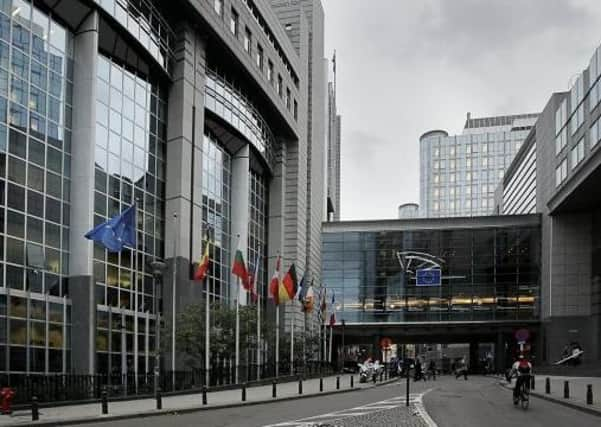European Commission sets import duties on maize


Since 3 March 2018 there has been no duty placed on these imports.
The duty has been set in response to high supply and low prices for maize worldwide in order to ensure that European producers are not put at a disadvantage.
Advertisement
Advertisement
High maize crops in the US and a reduction in bioethanol demand has resulted in a large volume of maize on the global market.
The revised tariff is calculated based on the difference between a European reference price and the world benchmark for maize, which is the US price CIF Rotterdam (Cost, Insurance and Freight to the port of Rotterdam).
MEPs call for more agricultural support in light of COVID-19
Following the Commission’s announcement of a package of measures to help the agriculture sector, there have been calls for more to be done to help the industry with the negative impacts caused by the COVID-19 crisis. In a meeting with Agriculture Commissioner Wojciechowski, MEPs from the European Parliament’s Agriculture Committee called for the crisis reserve to be triggered and for more funds to be channelled into agriculture, saying that the €80m promised is not sufficient.
Advertisement
Advertisement
Southern member states in particular feel that the package is targeted more at northern EU members, as there is no support offered for horticulture, wine or pork, which are major commodities in the south.
In response, Commissioner Wojciechowski said that the Commission is looking at supplementary measures and that he would work to find more money for the sector. He supported the use of the crisis reserve but pointed out that this depends on the member states willingness to trigger the reserve.
Agriculture Committee wants two-year transition period for new CAP
The European Parliament’s Agriculture Committee has voted on a position that would see an extension to the CAP transition rules by two years, meaning that direct payments and rural development funding will continue unchanged during a “flexible transition period” of up to two years.
Advertisement
Advertisement
The Commission had proposed a transition period of one year starting on 1 January 2021, but many MEPs have been vocal about the need to extend this given that there has been no agreement on the Multiannual Financial Framework (EU budget) for the next budgetary cycle.
MEPs repeated a call to maintain CAP funding at 2014-2020 levels in the new EU budget. If there is no agreement on the MFF by October 30 the extension is triggered automatically.
The text will now go to the European Parliament’s plenary in mid-May. A revised MFF proposal is currently expected to be announced on Wednesday this week, but there is a possibility that this could be delayed further.
EU-Mexico trade deal concluded
The final element of the new EU-Mexico trade deal was finalised last week and can now move forward for ratification by the parties.
Advertisement
Advertisement
The deal will make almost all trade between the EU and Mexico duty-free, with EU exports of poultry, cheese, pasta, chocolate and pork set to benefit the most.
Many cheeses will have preferential access, and exports of skimmed milk powder will start at 30,000t and rise to 50,000t after five years. Nearly all pork products will be traded duty-free, while high tariffs on products such as confectionary, blue cheeses, pasta, apples and some pork products will be eliminated. The EU is Mexico’s third largest trading partner, and Mexico is the EU’s second largest trading partner in Latin America after Brazil.